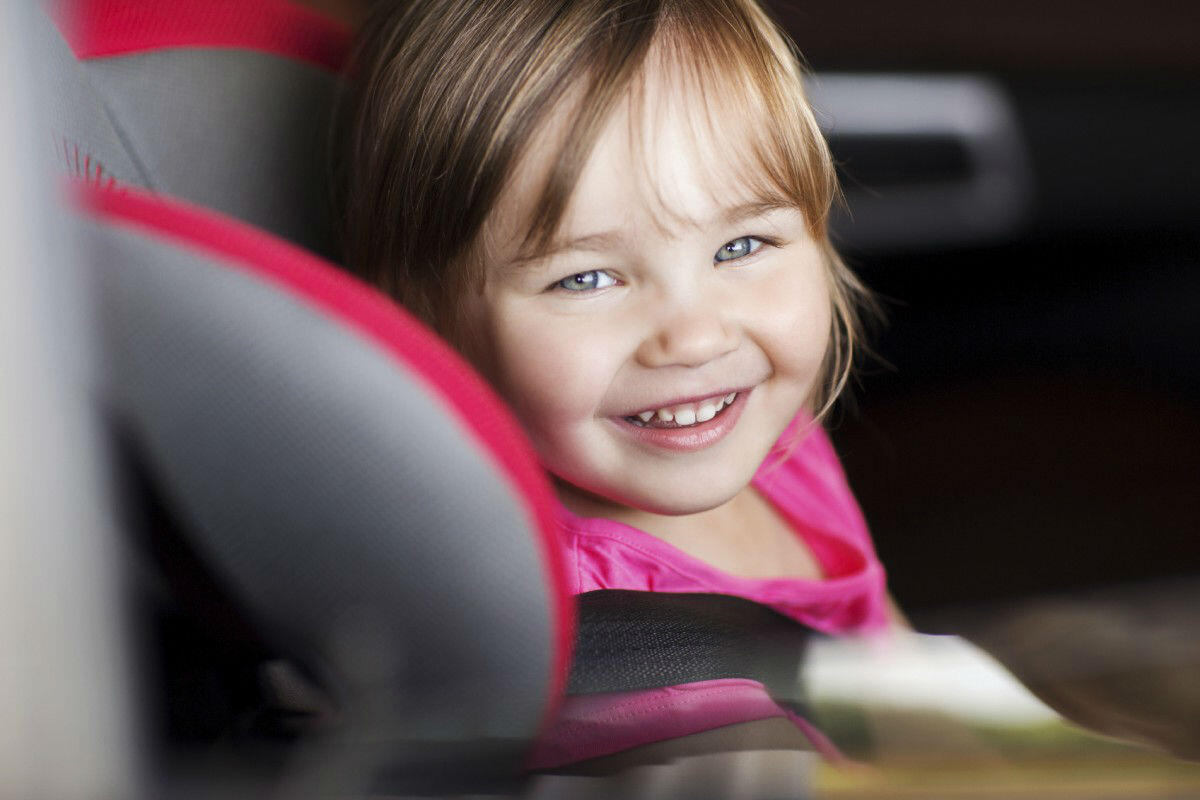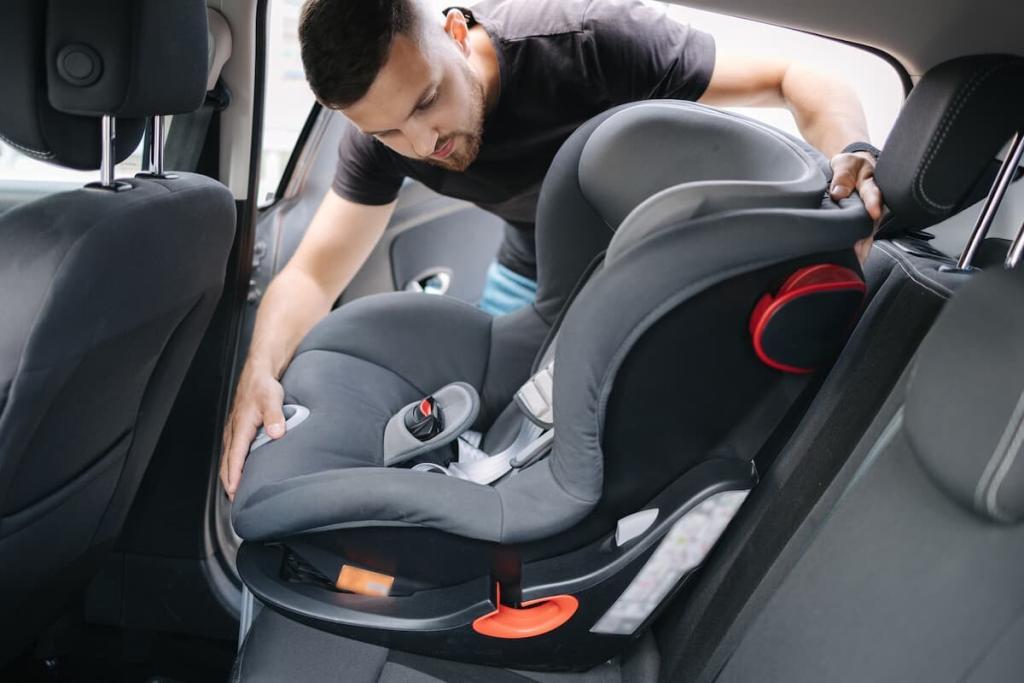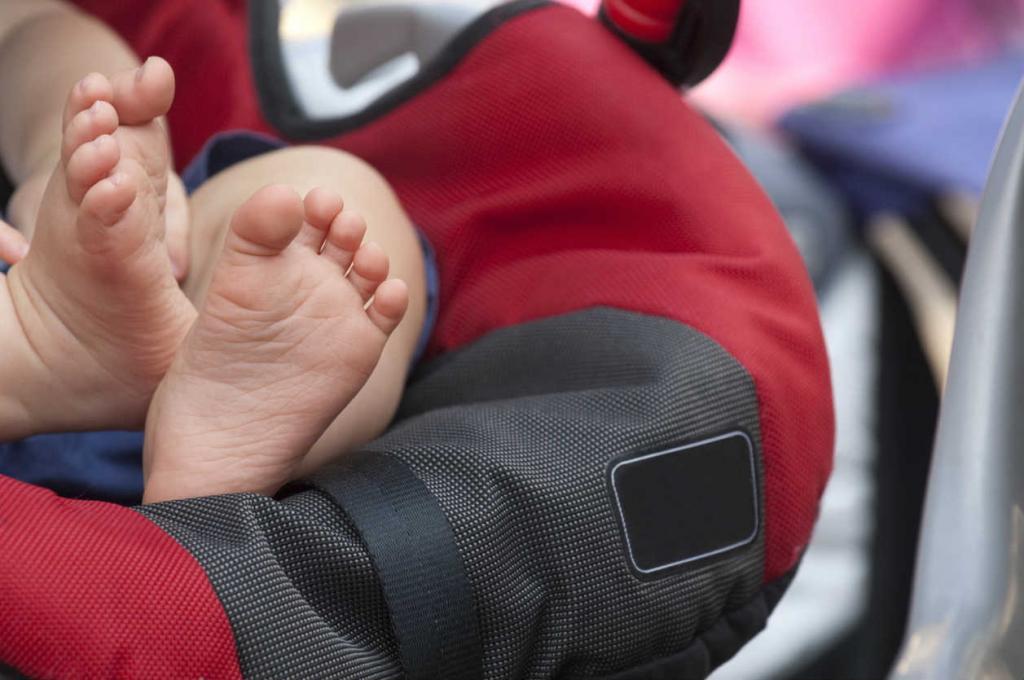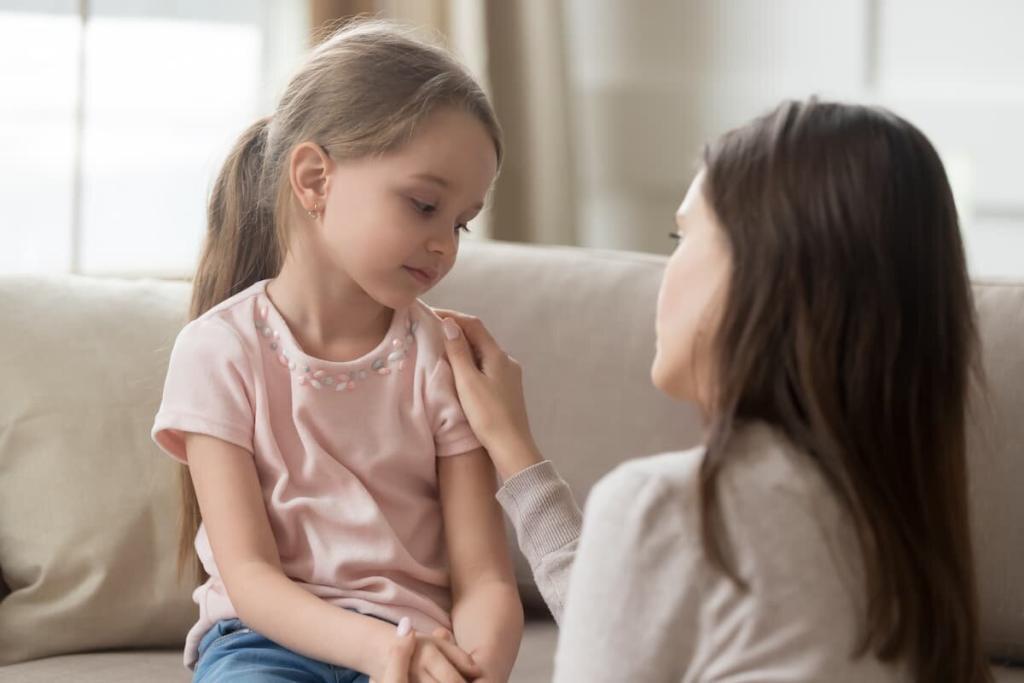Child Car Accident & Child Car Accident Settlement
Parents have no greater fear than learning their child has been seriously injured or killed. Unfortunately, children are too often victims in Missouri car accidents.

Millions of Americans are seriously injured in car accidents each year. Many accident victims are vehicle passengers such as young children, teenagers or the elderly. If you are a passenger who was seriously injured in a car accident, or if you are a parent whose child was seriously hurt, speak to an experienced St. Louis car accident injury lawyer as soon as possible. You have rights — protect them!
Automobile accidents are often more dangerous for child passengers because of the severity of injuries. Despite the laws that are in place to protect child passengers, car accidents remain one of the leading cause of deaths among children between the ages of 0 – 13 years.
Child Passenger Safety Statistics
- According to a study conducted in 2012, about 121,000 auto-accident injuries are reported among children annually.
- Every 34 seconds, a child in the U.S. is involved in a car accident. Approximately one out of three children were not restrained by safety equipment.
- Car seats can reduce the risk of serious injury by 71% among infant passengers.
- In 2012, about 284 children were saved in car crashes due to the fact that they were using safety restraints.
When a Child Cannot Communicate Using Words
If your baby or child was hurt in an accident, it is your duty as a parent to advocate on their behalf. Particularly with babies who are unable to communicate their pain and suffering with words. Our firm is comprised of compassionate car accident lawyers who will help to make the legal end of your car accident easy for you, while you tend the health and well-being of your injured child.
Child Car Accident Injuries in Missouri
Parents have no greater fear than learning their child has been seriously injured or killed. Unfortunately, children are too often victims in Missouri car accidents. According to the National Center for Statistics and Analysis (NCSA), car accidents are the leading cause of death for children ages 2 to 14, and 20 percent of all children killed in car accidents are struck by drunk drivers.
Our firm aggressively pursues anyone responsible for your child’s injuries or wrongful death. We realize that no amount of money can truly compensate you for what you have gone through, but we firmly believe our clients should not be responsible for the costs of another person’s negligent driving. We will help you obtain compensation to pay for the proper medical care, which includes covering the medical bills you have already accumulated.
Some common injuries sustained by children and passengers include:
- Brain and head injuries
- Neck and spinal cord injuries
- Severe lacerations or scarring
- Broken bones
- Psychological injuries
- Permanent disability
Non-Traffic Related Accidents
Many children are injured or killed in front over or back over accidents. In other words, many accidents occur when the driver, while doing a back over fails to notice the child and runs over him. Missouri car accident attorneys feel that such accidents occur because children’s playing areas are generally in close proximity to places where vehicles are parked.
Child Head Injuries
Head injuries are the most commonly found in babies after a car accident. Concussions are a serious side effect of these types of traumas. The trouble is that most tests for brain injuries involve sensory cues to assess any cognitive damage, such as follow the doctor’s finger with your eyes, or asking questions that the victim should know the answer to.
These types of cognitive tests are impossible to perform on a baby who has yet to develop some of those very cognitive skills that doctors are trained to look for in head trauma injuries.
The lack of skeletal development in a baby makes head injuries even more serious for them, necessitating treatment quickly to avoid future problems with developmental milestones and educational delays. Even worse is the possibility of future psychological disorders or paralysis if the underlying cause of trauma is not diagnosed and treated quickly enough.
How does a concussion affect the victim?
Concussions can cause headaches, affect memory, balance, judgment, and coordination. Both adults and children can experience these symptoms. However, some studies show that the long-term effects of concussions suffered by children in car crashes can have a profound effect on their development in the future.
Concussions and children
In a recent study conducted by the Ohio State University’s Center for Biobehavioral Health, the scientists aimed to identify the children that may be at greatest risk for experiencing lingering symptoms.
The study involved 186 children in the age group of 8-20 years, who had suffered mild brain injuries such as mild concussions. The results were based on the symptoms (as reported by the parents) experienced by children up to 12 months after the injury. It was found that 60 percent of the children with concussions or another brain injury with no loss of consciousness.
In most children with these injuries, the symptoms resolved within a few months, however, the results showed that problems may persist for up to 20 percent of the children. Symptoms such as forgetfulness are more likely to linger than dizziness, fatigue and other physical problems.
The study revealed that loss of consciousness seemed to be a more telltale sign of future complications. Children who suffered a loss of consciousness or had other mild head injuries that caused brain abnormalities were more likely to experience lingering symptoms such as:
- Difficulty paying attention
- Forgetfulness
- Fatigue
- Headaches
Child Passenger Safety Equipment

Seatbelt restraints, car seats, and booster seats have the ability to maximize safety for children in cars. Children tend to outgrow their car seats quickly. However, the longer children use a booster seat, the safer the child is from car accident injuries and fatalities.
- It is essential that children between the ages of 8 to 13 properly use a seat belt.
- Using size and age-appropriate car seats and boosters are as important as using safety restraints in vehicles. A child should fit well in a car seat or a booster to ensure maximum safety.
- It is mandatory to have children one year and younger always placed in a rear-facing car seat.
- Children two years and up should be placed in a front-facing car seat that is equipped with a harness and tether to ensure securing the child snugly.
- A booster seat should be used only when the child outgrows the forward-facing seat.
- When securing a child to a car seat or a booster, the lap belt should snugly rest on the upper thighs and the shoulder belt should extend beyond the chest and shoulders.
We understand that if your child has been injured, it has been a difficult time in your life, watching your baby suffer from head trauma and not being able to get a clear prognosis. While hard to think about, it is important to start considering the possibility of your baby’s long term medical care and how you will be able to provide for that. We can help you come up with a plan for filing a claim and pursuing compensation that will provide rehabilitation therapy and ongoing medical care for your injured baby.
Keeping Our Children Safe
Parents, caregivers, and drivers should take every possible step to ensure that children do not play in the area where vehicles are parked. They should also be extra careful while driving or parking vehicles in an area where children generally play or move around. For the education of readers on child safety and to prevent non-traffic related child injuries, Missouri car accident lawyers have compiled a list of safety tips for parents, caregivers, and drivers.
- Before getting into the car, you should walk around the parked vehicle and check if there are any children around. Also, see to it that there is nothing around the vehicle that can attract a child. Look under the vehicle before you get inside.
- Designate safe play areas for children. Make sure that children play in the areas that are away from moving and parked cars.
- Do not let children get in and out of the car unattended.
- Hold the hand of the child when they are in parking lots, driveways, or sideways, and also when there are moving cars around them.
- If you are to make a child wait, make sure you designate a place where they are easily visible to the drivers.
How to Pick the Right Car Seat for Your Child
Traffic injuries and accidents are one of the leading causes of death for children. The good news is you can help protect your child by making sure they’re properly secured in a car seat that’s appropriate for their age and size. In fact, proper use of car seats has been found to reduce the risk of death in a crash by 71–82% when compared to seatbelt use alone.
To help you keep your child safe on the road, here are some tips to pick the right car seat for your child.
Familiarize Yourself with Missouri Car Seat Requirements
The first step is to familiarize yourself with the car seat requirements in Missouri. All 50 states have child passenger safety laws, but they vary from state to state. Under Missouri’s car seat law (RSMo 307.179), all children under 8 years old must be properly secured in a car seat or booster seat that is appropriate for their height and weight, or they may use a seat belt if they are tall enough (at least 4’9″) and weigh at least 80 pounds.
If you are unsure whether your child meets the height and weight requirements for a particular car seat or booster seat, you can always check the manufacturer’s website for more information. Once you have determined which type of car seat or booster seat is right for your child, you can begin shopping around for the best deal.
Don’t Buy a Used Car Seat
When it comes to car seats, safety should be your number one priority. Unfortunately, many parents make the mistake of buying a used car seat in an effort to save money. While it is true that new car seats can be expensive, the risks associated with used seats are simply too great. Used car seats may have hidden damage that could compromise their safety and may not be up to date with the latest safety standards.
In addition, used car seats may not come with instructions, making it difficult to install them properly. For these reasons, it is always best to buy a new car seat for your child. By doing so, you can ensure that your child is safe and protected while on the road.
Read the Labeling
All car seats have a label that includes the manufacturer’s name, the model number, and the date of manufacture. The label also specifies the weight and height limits for the seat, as well as the appropriate age range. It’s important to select a seat that is appropriate for your child’s size and weight, as this will ensure a proper fit and provide optimal protection. In addition, the label will also specify the type of car seat (rear-facing, forward-facing, or booster).
What to Do If You Get into a Car Accident with a Child

Getting into a car accident while driving with your child may sound like a true nightmare. Even worse, if your child suffers from injuries resulting from the accident, you may be looking at an especially complex case both legally and financially.
After a car accident with a child, there are a few special steps you should generally take.
Check for Injuries
The most important thing to determine right now is your child’s safety. Your first instinct may be to remove your child from the car seat, but this might not be the best idea if your child has sustained neck or head trauma, which may not always be apparent immediately after an accident. If you have to take your child out of the car for safety reasons, it’s best to remove the entire car seat with your child still strapped in until the ambulance arrives.
Call for Help
Your child will likely be in shock after an accident, so you’ll want to be able to focus on their emotional needs. Ask your partner, a friend, or your lawyer to meet you to help you deal with the legal aspects, like taking pictures, to allow you to better care for the emotional and physical needs of your child.
See a Doctor
Of course, making sure your child isn’t suffering from spinal cord injuries is the number one priority, but your doctor will probably also want to assess the mental health of your child. Getting in a car accident can be enormously traumatic for anyone, especially a child, so your pediatrician might recommend that your child see a therapist. You should also keep an eye out for signs of trauma or anxiety-like nightmares or difficulty falling asleep. In infants, trouble feeding and irritability could be signs that your child is suffering.
Call a Lawyer
Because injuries may not always be apparent in young children right away, it’s especially important to start working with a St. Louis auto accident attorney right away. If an injury only becomes obvious months after the accident, working with a lawyer from day one could save you time and help your child get the care that they need.
The unfortunate truth is that children are more susceptible to injury in a car accident and injury to the head or spine could result in a lifelong disability. Working with a lawyer could mean the difference in being able to afford the care that your child deserves.
Replace Car Seats
Even if you can’t see anything wrong with your child’s car seat, the impact of the accident may have caused internal damage to the car seat, now rendering it ineffective or even dangerous.
Getting in a car accident can be both terrifying and costly. When you have your child with you this is especially true. Having the help of a trusted St. Louis car accident lawyer can help guide you through the stressful process of filing claims for your child and getting them the care that they need.
Signs to Watch for If You Are in an Accident With Your Children
As an adult, when something horrible and scary happens, you can usually make sense of the situation. Children don’t have the same maturity to comprehend what goes on during a traumatic crisis. Something as minor as a car crash can leave a huge impact on your child and lead to emotional distress long after the event is over. If you are in a car accident with your child, it is not only imperative that you watch for signs of physical trauma but also critical that you pay attention to the subtle cues of emotional trauma that can affect their future.
Non-Economic Damages
When you and your child are in a car accident, you are generally entitled to non-economic damages and economic damages. Mental trauma can fall under both of those categories. If your child is experiencing trauma due to a car accident, then you may be entitled to have both the cost of their therapy covered and to be compensated for their emotional distress. But, how do you know if your child is suffering if they can’t express their feelings about the event?
Since children aren’t as proficient at accessing and expressing their feelings, it is important to look out for the signs of emotional distress. A few of these signs include:
- Restlessness
- Sleeplessness
- Anxiety or nervousness
- Weeping
- Unwarranted fears
- Depression
- Lethargy
If you notice that your child’s behavior has altered since a car accident or that they are showing signs that they have been mentally traumatized, it is important for you to seek the proper medical attention. This will ensure that your children get the help they need and so that you are fairly compensated after for their distress.
What Kind of Proof Do You need to Show That Your Child Is Suffering Emotionally?
Since trauma and mental anguish are highly subjective, it is important that you seek medical attention if you fear that your child has been traumatized and that the trauma has had a lasting effect. A clinician will be able to diagnose and treat your child to minimize the potential that the car accident will have a long-term effect on your child’s psychological well-being.
Having the proper documentation will not only be important to getting your child the emotional care that they need, but it will also be necessary to receive what you are both entitled to for non-economic damages. If you aren’t paying close enough attention to get your child the care needed, your child can have residual anxiety that can last a lifetime.
Collecting Damages for Personal Injuries
When a child is injured in a car accident caused by someone else’s negligence, the child has the right to compensation, including pain and suffering. The child has the right to collect damages and the parents have the right to receive compensation for medical bills and lost wages associated with the child’s injuries.
Because a child cannot negotiate a settlement on his or her own, the parents or legal guardians are allowed to negotiate on behalf of the child. In order to reach a settlement, the parents may need the approval of a judge for the settlement amount. A St. Louis child car accident attorney can file a form and submit it to the court for authorization.
Injuries Caused by Another Child
If the child’s injuries are caused by another child, the negligence and carelessness notions are similar to that of an adult who causes injury. However, the standard of care used to establish negligence is different, because a child’s expectation of responsibility is not the same as that of an adult.
A teen driver, if held liable for causing injuries to a child, will most likely not have much money of their own, so the teenager’s parents will be named in the lawsuit for compensation. However, determining if a parent is legally responsible for the action of a minor can be complex. Consult with The Hoffmann Law Firm, L.L.C. for legal guidance.
Helping Your Child Get Over Fear After a Serious Car Accident

Being in a car accident can be traumatic for anyone. However, it can be especially difficult for children. Whether they were in the car with you when the accident happened, or they saw it happen and now they’re having nightmares, your child may need help getting over fear after a car accident.
Talk to Your Child About What Happened
Explain the details of the accident in a way that is age-appropriate and easy for them to understand. Let them know that you are okay and that they can come to you with any questions or concerns.
Reassure Your Child That They Are Safe
It’s natural for your child to feel scared and unsafe after an accident. Reassure them that they are safe now and that you will do everything you can to keep them safe in the future. Let them know that they can always come to you if they’re feeling scared or overwhelmed.
Listen to Your Child and Help Them Process Their Emotions
Your child may feel a range of emotions after an accident, including shock, fear, anger, and sadness. Help them to process these emotions by talking about them openly and honestly. Encourage them to express their feelings in whatever way feels comfortable for them, whether it’s through talking, drawing, or writing.
Seek Professional Help if Necessary
Whether it’s a visit to the doctor or therapist, seek professional help if you feel like your child is having difficulty coping with the accident. A professional can help your child to work through their emotions and to develop healthy coping mechanisms.
Return to Normal Activities
While it may take some time, it’s important to return to your normal activities as soon as possible. This will help your child to feel a sense of stability and normalcy. Try to keep routines as consistent as possible and avoid any major changes in the aftermath of the accident.
Contact a St. Louis Child Injuries Lawyer
As one of the preeminent firms helping victims of St. Louis car accidents, we understand how to build strong cases. When you hire our firm, you can be confident that everything will be done to protect your rights and recover the compensation you need.
Free Consultation with a St. Louis Car Accident Lawyer
Don’t talk to an insurance claims adjuster before speaking with The Hoffmann Law Firm, L.L.C. We can help you avoid making statements that may affect the outcome of your case. The consultation is free; you don’t pay unless we get you money!
Free Consultation (314) 361-4242